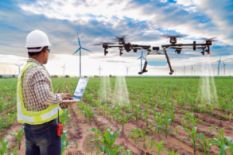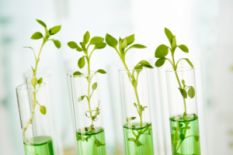What windows of opportunities in the agricultural sector are open for Ukraine today?
Many opportunities are now open. The world today is developing in such a way that two main macrotrends can be traced. The first one, which is a talk of the town, is that, according to forecasts and estimates by the UN Food and Agriculture Organization (FAO), the world's population will reach 10 billion people by 2050. And, according to the FAO, our country, unlike most in the world, has the potential to become a strategic food supplier to the world's growing population. All this puts fairly serious responsibility on us. We have a great potential to increase agricultural production and make it more effcient. In 2016, we harvested 66m tonnes of grain crops, a year later almost 62m tonnes. And this is far from the limit. I am confident that we can easily harvest 100m and 120m tonnes, subject to the development and use of technology (the yields will also grow accordingly).
There is a second macrotrend, which is also of great importance for Ukraine, and here our country faces not just a huge "window" of opportunities but I would even say the "door" of opportunities! (Smiles) The number of customers from the so-called middle class is increasing, in particular in Asia (China, Japan, Singapore, etc.), Western Europe and North America, as well as in Africa. These are people with a fairly high level of income, who pay increasingly more attention to healthy food, to niches such as superfood, organic products and local farmers' produce. In this regard Ukraine also has a great potential: our organic agriculture is developing very rapidly, we are already exporting a lot of organic products, although these are mostly raw products. EU countries are the main market for our organic exports, and now we are beginning to supply more and more processed products such as cereals, juices and pastas.
Considering these two mega-trends, the task of Ukraine as a state and its government is to help our producers and exporters not to miss opportunities.
How sustainable, transparent and predictable for all agrarian market players is Ukraine's state agrarian policy?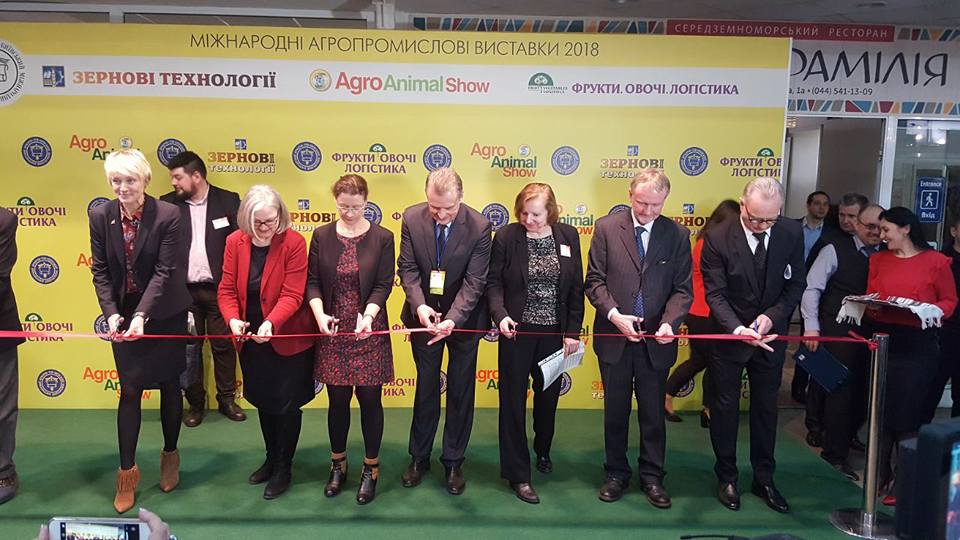
A difficult question. At the level of the government and the ministry, we try to master all the principles you have listed. For example, as far as the transparency of the distribution of state support is concerned, we try to make sure that there are as few corruption risks as possible, and that as few bureaucrats as possible are involved. As for predictability, we are moving towards this. Minister Taras Kutovyy made a big step in this direction. For example, we introduced the so-called medium-term planning, and we were able to make sure that the Ukrainian Budget Code reserves 1% for the state support of our agribusiness. Each year, 1% of our agricultural GDP should be used to support Ukrainian agricultural producers. And this is guaranteed for five years.
However, unfortunately, some negative aspects persist. Everybody heard about the adoption of the so-called soy amendment to our Tax Code. (According to new amendments to the Tax Code of Ukraine, which came into force on January 1, 2018, the refund of export VAT on soybeans will be canceled from September 1, 2018 to December 31, 2021, and on rape from January 1, 2020 to December 31, 2021. This regulation contradicts commitments undertaken by Ukraine during the accession to the World Trade Organization (WTO) and during the signing of the Association Agreement with the EU - Ed. note). I consider such things unacceptable in agrarian policy. This is a so-called principle of ad hoc policy, when a policy is not based on some strategy or long-term vision, but is a short-term reaction to changes.
That is, when parliament can change taxes overnight, and the next morning producers and farmers wake up in another legal framework. Such things are unacceptable unequivocally. And I am very glad that at the governmental and ministerial level we are really trying to shift to a long-term policy. The policy of our ministry is becoming more predictable, there are fewer unpleasant surprises. We follow the principle "Do not interfere, and give support where you can". And the policy itself becomes more sustainable. If we look at what has been happening over the previous decade, each new government "made deep-root changes" to everything that had existed before it. And now, at the government level, there is a continuity of policy. Yes, people change, the course gets corrected, but the core principles remain the same.
How can different Ukrainian industry associations strengthen their positions and enter promising international markets?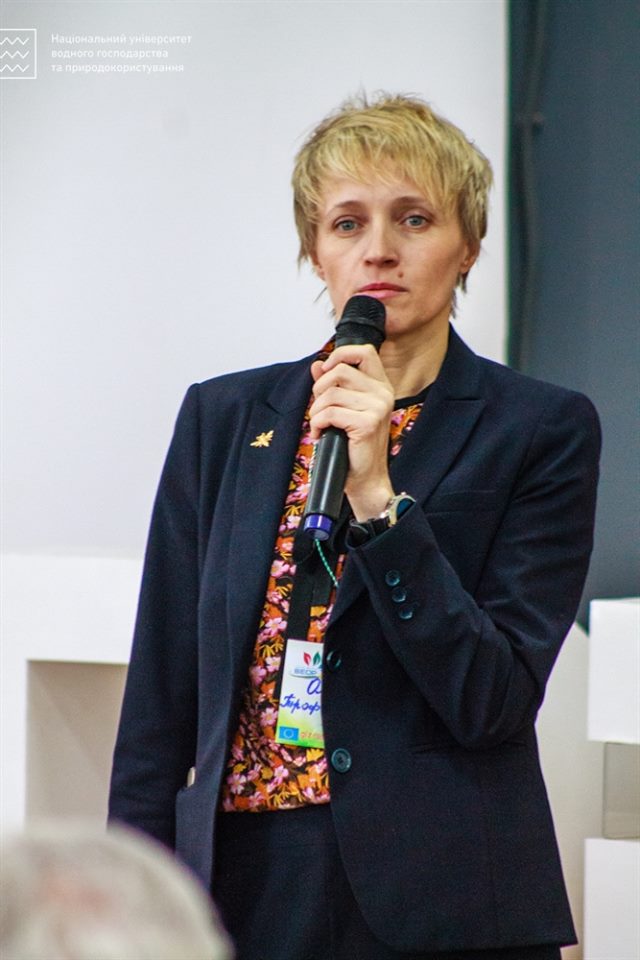
Many are already doing this. We have many success stories, from our gardeners to producers of dairy and meat products. They are becoming more active. Important factors are openness and understanding that Ukrainian producers and Ukraine as a whole are part of the global agrarian market, the so-called global village. The entire global agrarian economy is a big village. Our associations must understand that they are not working and making decisions in some isolated environment. Previously, people who understood this were an exception. Now, to my delight, they become a rule. And this shows the changes in the work paradigm. We see how a growing number of sectoral Ukrainian associations are more actively seeking participation in international events, first of all in professional exhibitions - they support their producers, make professional stands (this requires a lot of efforts, time and money). This is one big plus.
The second one is that more and more associations are beginning to understand that, despite competition with EU farmers, we need to find common ground and it is important to partner in certain situations. We have an "umbrella organization", the All-Ukrainian Agrarian Forum. Therefore, it needs to build direct contacts with COPA COGECA, the basic association of farmers in the EU. It includes national associations of EU member states. The organization is a powerful tool for defending the interests of European farmers, and I have always urged our farmers not to miss any opportunities for direct dialogue with COPA COGECA. Direct dialogue resolves many issues at the working level. But I would like to note once again that Ukrainian producers really start to think globally and feel like global players. And this is confirmed by changes in the paradigms of work.
When did these trends emerge?
I think these are the trends of the last four to five years. This is due to the turning point and reorientation of Ukrainian producers towards global markets instead of the Russian market, access to which, for known reasons, was blocked in 2014-2015. From the political point of view, the drama, unfortunately, continues to unfold in eastern Ukraine and Crimea, while, from the economic point of view, these events have led to an interesting effect. There can be different views on this, but in the long term it played a positive role because it prompted our producers, including associations, to turn on the instinct of self-preservation and thus forced them to reorient geographically in order to survive.
In your opinion, what Ukrainian agricultural products have a particularly high export potential, but are still underappreciated?
Perhaps, these are organic products. Also, we gradually promote niche products: berries, fruits, nuts and products made of them. Herbs and technical crops such as flax and technical hemp are an interesting sector. In terms of the sectoral export strategy, we take into account the interests of customers in developed countries. Some examples are sugar-free cereal energy bars, nuts and berries. These our products will be in demand. And also, organic baby food is a promising direction to explore and develop. Ukrainian organic and ordinary honey is known for its quality, taste and adequate price, which can offer competition to European producers.
This year we as a state are offering bigger support to the livestock sector, meat producers. That is because, in my personal opinion, our meat, particularly steaks branded "Made in Ukraine", also has every chance to win markets and become a direct competitor to Argentine meat. But as long as there is not enough quality mass production, there is a work to do for everyone, both the state and business, so that later we could promote high-quality Ukrainian steaks in foreign markets. There is a great potential in all of this! (Smiles.)
You spent quite some time studying and working in Germany. What part of your German experience would you incorporate into the modern Ukrainian agro-context, if you could?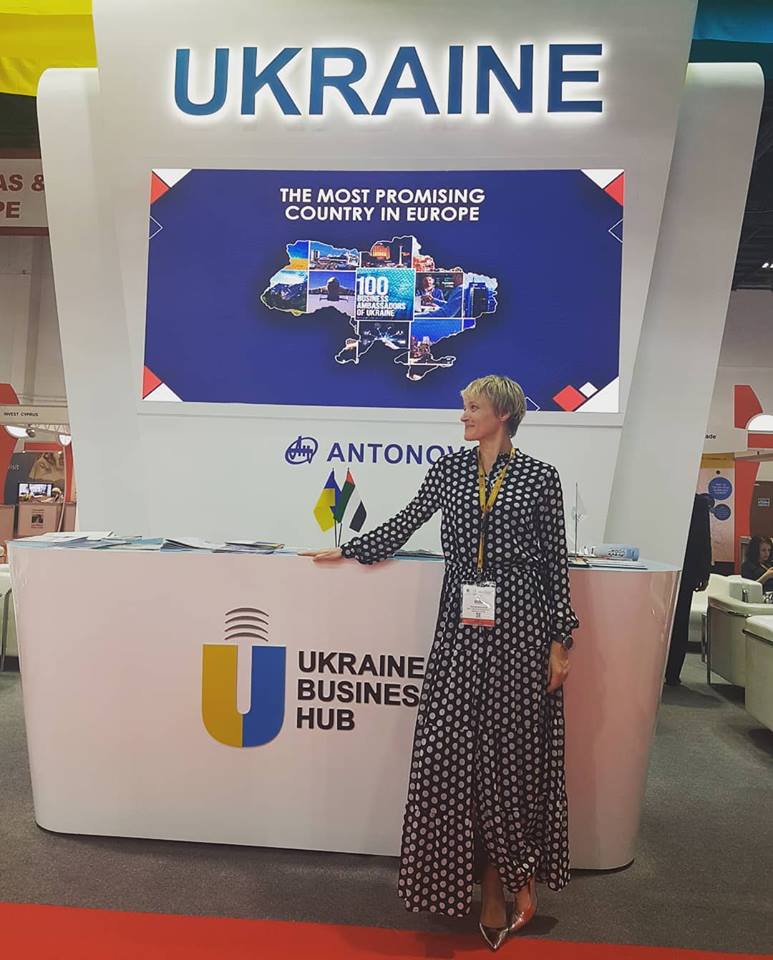
I returned to Ukraine in early 2016. I have lived and worked in Germany for 13 years. To give you a general answer, I would like us to implement laws in the same way. It is important to have the rule of law and structural approach in addition to a long-term strategy and a vision. Germans always have a vision how things should look in a long-term prospect, while we, Ukrainians, love to act impromptu. (Smiles.) But sometimes it's even good!
If we talk more specifically about the German experience which we may need to borrow, I really like Germany's agrarian policy on the safety and quality control of food. Everything is organized very competently, with pragmatic approaches and with a great focus on the end customer. This is where we are now gradually moving with our state service for food safety and consumer protection. And I hope that with time we will also have this system in operation. I really like how Germans treat their environment in the agricultural context, what attention they pay, for example, to the protection of bees or the use of pesticides. I give credit to the German policy of forest management. There is a lot we should learn here. But I will honestly say that we cannot just "copy and paste" this German experience to Ukrainian realities. The countries are different, the sectors are different, we have different mentality, so many aspects that work for Germany will not work for Ukraine.
One of your initiatives was to have agrarian attaches at Ukraine's embassies in countries and regions important for our agricultural exports. Time passed. How far are we with this idea today?
We are working on this. Certainly, the progress is not as fast as we would like it to be. But we have moved forward on this issue. The idea enjoys support of MPs in parliament's agrarian committee. Consultations with the Foreign Ministry are underway. A new law on diplomatic service was adopted (but vetoed by the president), we want to include agrarian attaches in this new legislation to make them its integral part. We are now in search of a compromise solution that will suit everyone. My position is that it is important to launch pilot projects in five major regions of the world with focus markets for Ukraine (or at least in two). In the course of one year, it will be clear whether this tool is effective. I believe that we need it. All leading economies of the world have this institution, and it is efficient.
What advice would you give to foreign businessmen who are only starting to live and work in Ukraine?
I would suggest that foreign and local businessmen pay more attention to positive aspects because, let me repeat myself, Ukraine is a country of huge opportunities. Yes, we have problems, but every country has them too. Nevertheless, Ukraine today is a point of growth and unique business opportunities, especially in the agrarian and food industries. And if problems arise, which they always do, do not give up! (Smiles.) Because Ukraine (as far as its people and environment are concerned) is a very kind country. Our people will certainly help you to solve problems that may stand in the way!
Interviewed by Miroslava Makarevich
Olga Trofimtseva Talks about Future of Agriculture in Ukraine
AgroDestinations presents an interview with Olga Trofimtseva, Deputy Minister of Agrarian Policy and Food of Ukraine for European Integration. Unlike most Ukrainian officials, Olga has a real and unique experience in leading positions abroad. Prior to her appointment to the Ministry of Agrarian Policy, she was in charge of the project called "Advising Ukraine on Agricultural Trade Issues - within the Framework of the EU-Ukraine Deep and Comprehensive Free Trade Agreement (DCFTA)".
